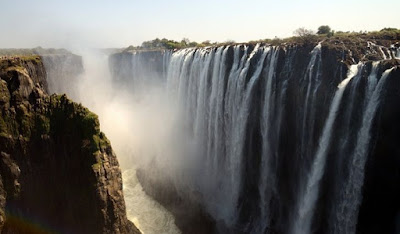Introduction:
My name is Hanna Anderson and I am an Affiliate Philosophy student at UCL for the semester. Even though here in the UK I am currently studying Philosophy and Geography, back in the states, I am an International Relations major focusing on Development and Human Rights. Despite Geography and International Relations being seemingly different fields, important linkages between the two are seen in aspects many of Development. Geography plays a key role in resource distribution which is a significant contributor to the array of developmental challenges seen today. My focus for this blog in particular will be on the relationship between water and politics of Sub-Saharan Africa. I hope to build upon my existing knowledge of the region and its politics, and I wish to identify and highlight important causal relationships between the landscape, particularly water and access to it and power dynamics.
Regional Focus:
I would like to focus this blog on Southern Africa as opposed to the continent as a whole. The reason being that the African Continent has a wide variety of different geological features and in order to accurately connect those to politics, proximity to each other and common geological features is imperative to the goals and purpose of this blog. Southern Africa in particular has some of the most and highest density of transboundary water sources on the continent, which inevitably results in highly debated hydropolitics in relation to development. (Chapman 2011). I have done research in this region for other courses and I look forward to continuing that research through a geographical lens rather than just a political or cultural one.
Why Is This Relevant?
I believe that although the Southern African region has a diverse range of countries as far as stability, economic strength, and resource supply, they are all connected through the many river basins in the region. Access to these water sources and hydropolitics as a whole are becoming the center of debate in the region as water scarcity rises, particularly with the recent water shortage in South Africa.
(Donnenfeld, Crookes, and Hedden 2018). As more and more of these countries begin to develop more sectors within their economies, taking into account water scarcity and sustainability is paramount. Studies have shown many of the current trajectories countries are taking in using water as a means for development are heading towards ecological catastrophe, some of which may be beyond repair by policy.
(Turton 1997). Because these basins are transboundary, continued shared use of them will require future policy cooperation, however varying capabilities when it comes to sustainable development poses important problems to that cooperation.
(Söderbaum 2015). By studying various aspects of the challenges posed by water use and access, I hope to make meaningful connections to politics and development of the region.




Comments
Post a Comment